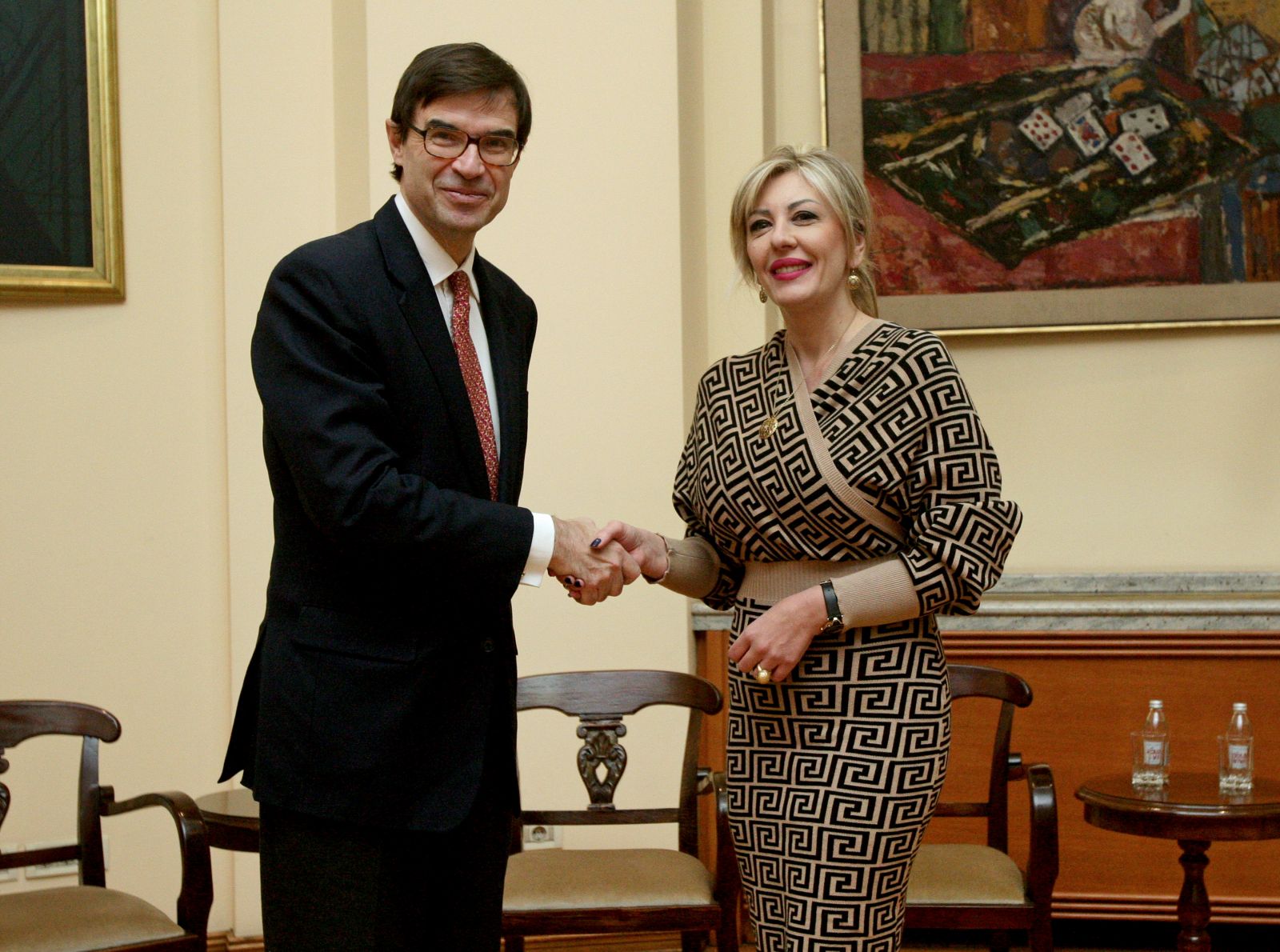
Minister of European Integration Jadranka Joksimović and Juan González-Barba Pera, Secretary of State for the European Union within the Spanish Ministry of Foreign Affairs, European Union and Cooperation, have discussed Serbia's activities in the further accession process, the cooperation between the two countries in the process of European integration, the situation in the region, bilateral relations and other topics.
The Minister has thanked Spain for the support and assistance it has been providing to Serbia in the European integration process, given that Spain is an advocate of the enlargement policy and clearly supports Serbia's European future.
Jadranka Joksimović has informed her interlocutor of Serbia’s commitment to the accession process, and has stressed that special attention is paid to the rule of law, the economy and sustainable development in the reforms.
The interlocutors have exchanged their views on the proposal of a new EC methodology. Jadranka Joksimović has assessed that the proposal of a new methodology is not bad for Serbia, but that it is not particularly better than the one Serbia is currently negotiating under. She has stressed that Serbia will wait to see the advanced economic plan, which is to be presented at the Zagreb WB – EU Summit in May, and that it will carefully analyse it and then make a decision.
The Minister has stressed that Serbia has proven to have the potential to negotiate according to any methodology, recalling that Serbia is already negotiating under a strict methodology and that it is the only country that started negotiations with the early opening of chapters 23 and 24 relating to the rule of law and Chapter 35 that monitors the normalisation of relations between Belgrade and Pristina.
Jadranka Joksimović has also noted that a credible EU enlargement policy should allow for greater funding for the development of IPA 3 Programme for the 2021 – 2027 perspective, as well as for the WBIF - Western Balkans Investment Framework, but also make room for additional investments with regard to sustainable development priorities and the Green Deal for the region.
The Minister of European Integration has also thanked Spain for its principled and consistent position regarding the non-recognition of the unilateral declaration of independence of Kosovo. She has expressed her expectation that Pristina will abolish tariffs on goods coming from Central Serbia, thus providing conditions for the continuation of the dialogue.
The Secretary of State for the European Union within the Spanish Ministry of Foreign Affairs, European Union and Cooperation, Juan González-Barba Pera, has said that his country will continue to actively support and promote Serbia's accession process. He has pointed out that Serbia is the frontrunner in terms of reform results, stressing that it is very important that the reforms in the segments of the rule of law, economy and sustainable development are visible, and has said that they should be continued. González-Barba Pera has noted that Spain advocates the continuation of the dialogue between Belgrade and Pristina, with Pristina’s clearly presented obligation of abolishing the previously imposed additional tariffs.
González-Barba Pera has also stressed that Spain is strongly committed to respecting the status neutrality of the EU, in terms of the representation of so-called "Kosovo".
Joksimović and González-Barba Pera have emphasised the importance of the appointment of former Spanish Foreign Minister Josep Borrell to the position of Vice-President of the European Commission and High Representative of the EU for Foreign and Security Policy.
The interlocutors have agreed that the bilateral relations between the two countries are very good and without outstanding issues, and that there is a mutual commitment to their intensifying, primarily through trade cooperation, as well as via cultural and public diplomacy.
Source: Tanjug












